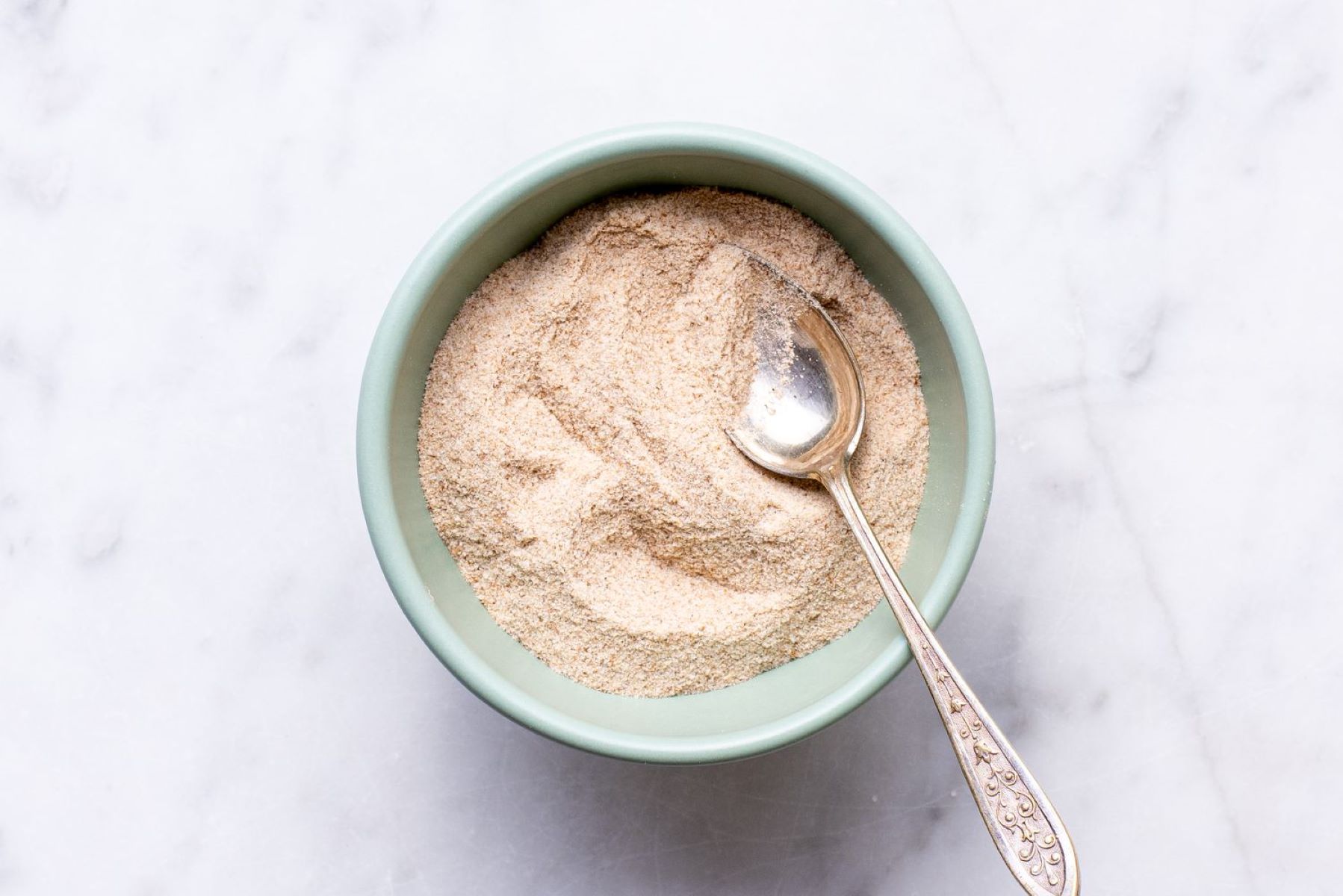Home>Food and Cooking>The Ultimate Guide To Using Acacia Fiber


Food and Cooking
The Ultimate Guide To Using Acacia Fiber
Published: January 31, 2024
Discover the benefits and uses of acacia fiber in food and cooking with our ultimate guide. Learn how to incorporate this natural ingredient into your recipes for a healthier diet.
(Many of the links in this article redirect to a specific reviewed product. Your purchase of these products through affiliate links helps to generate commission for Regretless.com, at no extra cost. Learn more)
Table of Contents
Introduction
Acacia fiber, also known as acacia gum or gum arabic, has gained popularity in the health and wellness community for its remarkable properties. Derived from the sap of the Acacia Senegal tree, this natural soluble fiber has been used for centuries due to its various health benefits. As we delve into this ultimate guide, we will explore the origins, health benefits, usage, and precautions associated with acacia fiber. Whether you are seeking to improve your digestive health, manage your weight, or simply enhance your overall well-being, understanding the potential of acacia fiber can be a valuable addition to your journey toward a healthier lifestyle. Let's embark on a comprehensive exploration of this remarkable dietary supplement and discover how it can positively impact your health and wellness.
What is Acacia Fiber?
Acacia fiber, also referred to as acacia gum or gum arabic, is a natural soluble fiber derived from the sap of the Acacia Senegal tree. This tree, native to regions of Africa, has been revered for centuries for its medicinal and nutritional properties. Acacia fiber is extracted from the hardened sap of the tree and processed into a fine powder, making it convenient for consumption as a dietary supplement.
This soluble fiber is renowned for its prebiotic properties, which means it serves as a source of nourishment for the beneficial bacteria in the gut. As a prebiotic fiber, acacia fiber supports the growth and activity of these beneficial bacteria, contributing to a healthy and balanced gut microbiome. Additionally, acacia fiber is highly soluble in water, forming a gel-like substance when mixed with liquids. This characteristic makes it an excellent thickening agent in various food products and a beneficial supplement for digestive health.
One of the distinguishing features of acacia fiber is its mild taste and excellent solubility, making it an easy addition to a wide range of beverages and foods. Due to its mild flavor, it can be seamlessly incorporated into various recipes without significantly altering the taste or texture of the final product.
Furthermore, acacia fiber is often used as a natural stabilizer and emulsifier in the food industry, contributing to the smooth texture and stability of many processed foods and beverages. Its versatility and beneficial properties have led to its widespread use in the culinary and health sectors.
In summary, acacia fiber is a natural, soluble dietary fiber with prebiotic benefits, derived from the sap of the Acacia Senegal tree. Its gentle nature, versatility, and potential health benefits make it a valuable addition to a balanced and wholesome diet.
Health Benefits of Acacia Fiber
Acacia fiber offers a myriad of health benefits, making it a valuable addition to a balanced diet. Let's delve into the remarkable advantages of incorporating acacia fiber into your daily routine.
1. Digestive Health Support
Acacia fiber is renowned for its ability to promote digestive health. As a prebiotic fiber, it serves as a vital source of nourishment for the beneficial bacteria residing in the gut. By supporting the growth and activity of these beneficial microorganisms, acacia fiber contributes to a healthy and balanced gut microbiome. This, in turn, can aid in alleviating digestive discomfort and promoting regularity.
2. Blood Sugar Management
Consuming acacia fiber may aid in managing blood sugar levels. The soluble nature of acacia fiber allows it to form a gel-like substance in the digestive tract, which can slow down the absorption of sugars. This can help prevent rapid spikes in blood sugar levels after meals, promoting more stable and balanced blood sugar levels over time.
3. Weight Management
Incorporating acacia fiber into your diet may support weight management efforts. As a soluble fiber, acacia fiber can help promote feelings of fullness and satiety, potentially reducing overall food intake. Additionally, its ability to slow down the absorption of nutrients, including fats and sugars, may contribute to a more balanced caloric intake and improved weight management.
4. Gut Barrier Function
Acacia fiber may also play a role in supporting gut barrier function. By promoting the growth of beneficial gut bacteria, it can contribute to the maintenance of a healthy intestinal barrier. This can help prevent the passage of harmful substances from the gut into the bloodstream, supporting overall immune function and wellness.
5. Dietary Support for IBS and IBD
For individuals with irritable bowel syndrome (IBS) or inflammatory bowel disease (IBD), acacia fiber may offer valuable dietary support. Its gentle nature and prebiotic properties make it a potentially beneficial addition to the diets of individuals managing these conditions, as it can support gut health and overall digestive comfort.
Incorporating acacia fiber into your daily routine can offer a range of health benefits, from supporting digestive health and blood sugar management to aiding in weight management and promoting overall well-being. Its gentle nature and versatile applications make it a valuable dietary supplement for individuals seeking to enhance their health through natural and holistic means.
How to Use Acacia Fiber
Incorporating acacia fiber into your daily routine is a simple and versatile way to reap its numerous health benefits. Whether you prefer to mix it into beverages, sprinkle it over foods, or blend it into recipes, acacia fiber offers a seamless and convenient means of enhancing your dietary fiber intake. Here's a comprehensive guide on how to use acacia fiber effectively:
1. Mixing with Liquids
Acacia fiber is highly soluble in water, making it effortless to incorporate into your favorite beverages. Simply add the recommended serving of acacia fiber to a glass of water, juice, or smoothie, and stir thoroughly until the powder is fully dissolved. This method allows for easy consumption and is an excellent way to ensure you receive your daily intake of dietary fiber.
2. Sprinkling over Foods
Another straightforward way to use acacia fiber is by sprinkling it over a variety of foods. From yogurt and oatmeal to soups and salads, acacia fiber can be lightly sprinkled over your meals to boost their fiber content without significantly altering their taste or texture. This method provides a discreet and hassle-free approach to increasing your fiber intake.
3. Blending into Recipes
For those who enjoy creating culinary delights, acacia fiber can be seamlessly integrated into a wide array of recipes. Whether you're preparing baked goods, sauces, or smoothie bowls, incorporating acacia fiber into your recipes can enhance their nutritional value without compromising their flavor. Its mild taste and excellent solubility make it an ideal addition to both sweet and savory dishes.
4. Considering Serving Size
When using acacia fiber, it's essential to adhere to the recommended serving size as indicated on the product packaging or by a healthcare professional. Starting with a smaller serving and gradually increasing as tolerated can help assess individual tolerance and minimize the risk of digestive discomfort.
5. Staying Hydrated
As with any dietary fiber supplement, it's crucial to consume adequate fluids throughout the day when using acacia fiber. Ensuring proper hydration can support the proper function of dietary fiber in the digestive system and aid in preventing potential constipation.
Incorporating acacia fiber into your daily routine can be a seamless and enjoyable experience, offering a myriad of health benefits without disrupting your lifestyle. Whether you prefer to mix it into your morning smoothie, sprinkle it over your lunchtime salad, or blend it into your favorite recipes, acacia fiber provides a versatile and convenient means of enhancing your overall well-being. By exploring various methods of incorporating acacia fiber into your diet, you can discover the approach that best suits your preferences and dietary habits, ultimately reaping the rewards of this exceptional dietary supplement.
Risks and Side Effects of Acacia Fiber
While acacia fiber offers numerous health benefits, it is essential to be aware of potential risks and side effects associated with its consumption. Understanding these considerations can help individuals make informed decisions regarding the use of acacia fiber as a dietary supplement.
1. Gastrointestinal Discomfort
In some cases, the introduction of dietary fiber, including acacia fiber, may lead to gastrointestinal discomfort such as bloating, gas, or mild abdominal discomfort. This is particularly true when individuals rapidly increase their fiber intake. Starting with smaller servings and gradually increasing the amount of acacia fiber consumed can help minimize the likelihood of experiencing these discomforts.
2. Allergic Reactions
While rare, allergic reactions to acacia fiber have been reported. Individuals with known allergies to the Leguminosae family of plants, which includes acacia trees, should exercise caution when considering the use of acacia fiber as a dietary supplement. Symptoms of an allergic reaction may include itching, hives, swelling, or difficulty breathing. It is important for individuals with known allergies to consult with a healthcare professional before incorporating acacia fiber into their diet.
Read more: The Ultimate Guide To Growing Orbeez
3. Medication Interactions
As with any dietary supplement, it is crucial to be mindful of potential interactions with medications. Acacia fiber has the potential to interfere with the absorption of medications due to its gel-forming properties in the digestive tract. Individuals taking prescription medications should consult with a healthcare provider to determine whether acacia fiber may affect the absorption or efficacy of their medications.
4. Hydration Considerations
When consuming acacia fiber, adequate hydration is essential. Insufficient fluid intake while consuming dietary fiber supplements can lead to constipation or gastrointestinal discomfort. It is important to maintain proper hydration by drinking an adequate amount of water throughout the day to support the beneficial effects of acacia fiber on digestive health.
5. Individual Tolerance
Each individual may respond differently to dietary fiber supplements, including acacia fiber. It is important to be mindful of personal tolerance levels and to adjust the serving size of acacia fiber based on individual comfort and digestive response. Gradually introducing acacia fiber into the diet can help assess individual tolerance and minimize the risk of potential side effects.
By being mindful of these potential risks and side effects, individuals can approach the use of acacia fiber with a well-informed perspective. Consulting with a healthcare professional before integrating acacia fiber into the diet can provide personalized guidance and support in maximizing the benefits of this natural dietary supplement while minimizing potential risks.
Choosing the Right Acacia Fiber Product
When selecting an acacia fiber product, it is essential to consider several factors to ensure that you are choosing a high-quality and effective supplement that aligns with your dietary preferences and wellness goals. With a plethora of options available in the market, making an informed decision can significantly impact the overall experience and potential benefits of incorporating acacia fiber into your daily routine.
Read more: The Ultimate Guide To Car Makes
Factors to Consider
1. Purity and Source
Opt for acacia fiber products that boast purity and are sourced from reputable suppliers. Look for certifications or transparency regarding the sourcing and production processes to ensure that the product is free from contaminants and additives.
2. Solubility and Texture
Consider the solubility and texture of the acacia fiber product. A high-quality acacia fiber supplement should dissolve easily in liquids without clumping or altering the consistency of beverages. Additionally, it should have a fine texture that allows for seamless integration into various recipes.
3. Organic and Non-GMO
For individuals prioritizing organic and non-GMO products, seek out acacia fiber supplements that are certified organic and non-GMO. These certifications ensure that the product is free from synthetic pesticides, herbicides, and genetically modified ingredients.
4. Allergen Information
If you have known allergies or sensitivities, carefully review the allergen information provided for the acacia fiber product. Ensure that it is free from common allergens such as gluten, soy, dairy, and nuts to accommodate your dietary needs.
5. Serving Size and Concentration
Evaluate the serving size and concentration of the acacia fiber product. Some supplements may require smaller serving sizes to achieve the desired daily intake of dietary fiber, while others may offer a more concentrated form, allowing for a lower volume of powder per serving.
6. Customer Reviews and Reputation
Research customer reviews and the reputation of the brand offering the acacia fiber product. Feedback from other consumers can provide valuable insights into the product's effectiveness, taste, and overall experience, helping you make an informed decision.
7. Additional Certifications and Testing
Look for additional certifications and testing conducted on the acacia fiber product, such as third-party testing for purity and potency. These measures ensure that the supplement meets high standards of quality and efficacy.
By carefully considering these factors, you can confidently select an acacia fiber product that aligns with your values, dietary preferences, and wellness objectives. Whether you prioritize purity, solubility, organic certifications, or allergen information, choosing the right acacia fiber product can enhance your experience and maximize the potential health benefits of this exceptional dietary supplement.
Conclusion
In conclusion, acacia fiber, derived from the sap of the Acacia Senegal tree, stands as a remarkable dietary supplement with a myriad of potential health benefits. Its role as a prebiotic fiber, promoting the growth of beneficial gut bacteria and supporting digestive health, makes it a valuable addition to a balanced diet. Furthermore, its soluble nature lends itself to aiding in blood sugar management, weight management, and gut barrier function, offering a holistic approach to overall well-being.
The versatility of acacia fiber allows for seamless integration into various dietary preferences and culinary practices. Whether mixed with liquids, sprinkled over foods, or blended into recipes, acacia fiber provides a convenient means of enhancing one's fiber intake without compromising taste or texture. However, it is crucial to be mindful of potential risks and side effects, such as gastrointestinal discomfort and allergic reactions, and to seek guidance from healthcare professionals when incorporating acacia fiber into the diet.
When selecting an acacia fiber product, factors such as purity, solubility, organic and non-GMO certifications, allergen information, serving size, and customer feedback should be carefully considered to ensure the choice aligns with individual preferences and wellness goals.
As individuals continue to prioritize holistic approaches to health and wellness, acacia fiber emerges as a natural and promising dietary supplement that can contribute to an overall sense of well-being. By understanding the origins, health benefits, usage, risks, and considerations in selecting a suitable product, individuals can harness the potential of acacia fiber to support their journey toward optimal health.
Incorporating acacia fiber into one's daily routine can be a simple yet impactful step toward achieving a balanced and wholesome lifestyle. With its gentle nature and diverse applications, acacia fiber offers a gateway to enhancing digestive health, promoting satiety, and supporting overall wellness. By embracing the potential of acacia fiber as a dietary supplement, individuals can embark on a path toward improved vitality and well-being, rooted in the natural and holistic benefits of this exceptional soluble fiber.










